Welcome to the wonderful world of gardening, where the simple act of planting a seed can have profound effects on your health and well-being. We’re not just here to admire the vibrant colors and fragrant blooms, but to explore 10 benefits of gardening- where it can be an active practice, transforming not only your outdoor space but your entire sense of vitality.
You see, gardening isn’t just about digging in the dirt or nurturing pretty petals; it’s a journey of total health, offering both mental and physical well-being benefits. But we’re not stopping there! We’ll also delve into how this therapeutic art can turn your living space into a sacred garden, a place where serenity, healing, and natural beauty coexist.
Buckle up because we’re about to dig deep into the ten benefits of gardening, and you’ll discover how to put this green-fingered wisdom into practice, turning your everyday living space into a blooming sanctuary. Gardening gloves on? Let’s grow! 
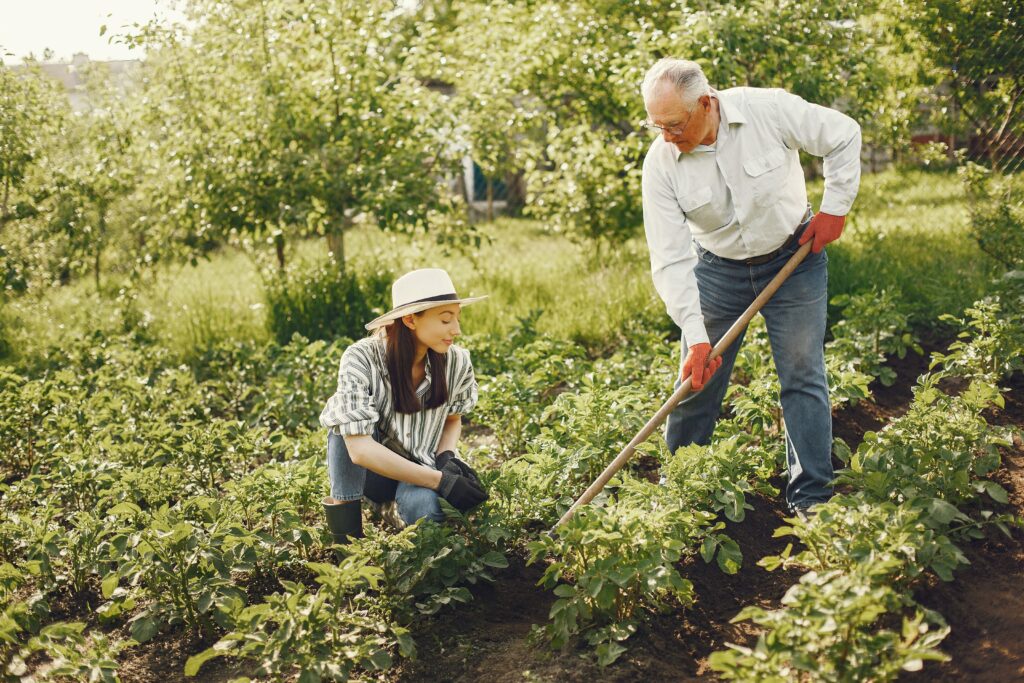
Physical Fitness: Gardening as a Full-Body Workout
Gardening, often perceived as a leisurely activity, is far more physically demanding than one might think. Engaging in gardening can provide a full-body workout, enhancing several aspects of physical fitness. Here’s how gardening contributes to your physical well-being:
Engaging Multiple Muscle Groups:
Gardening is not limited to just one or two muscle groups; it involves nearly the entire body. When you dig, plant, weed, or carry heavy loads, various muscle groups are actively participating. This full-body engagement helps in toning and strengthening muscles throughout your body.
Enhancing Strength and Endurance:
The continuous lifting, digging, and moving in the garden serve as a form of resistance training. This can enhance your muscle strength and endurance over time. For example, digging and shoveling provide an excellent resistance workout for your arms and upper body.
Improving Flexibility and Balance:
Gardening tasks often require a range of motion. When you reach for plants, bend to pull weeds, or stretch to prune branches, you’re improving your flexibility. These movements also contribute to better balance as you adapt to uneven terrain and shifting positions.
A Lifelong, Active Lifestyle:
Gardening is an activity that can be enjoyed at any age. In Blue Zones, regions known for longevity, gardening is often a lifelong hobby. It keeps individuals active well into their later years, contributing to their overall health and well-being.
As you get your hands dirty in the garden, you’re not just nurturing your plants but also your physical fitness. The benefits of a garden workout include better muscle tone, improved strength, increased flexibility, and enhanced balance, all of which contribute to a healthier, more active lifestyle.

A Lifelong, Active Lifestyle in Blue Zones
In Blue Zones, regions renowned for the remarkable longevity of their inhabitants, gardening is not merely a pastime; it is a way of life. These regions, such as Okinawa, Japan, Sardinia, Italy, and Nicoya, Costa Rica, are home to some of the world’s oldest and healthiest people. One of the secrets to their longevity is their commitment to lifelong, active pursuits like gardening.
In these communities, it’s common to find individuals well into their 80s, 90s, and even beyond, still tending to their gardens. Gardening is a practice embedded in their culture and traditions. It’s a legacy passed down through generations, allowing the elderly to remain physically active and engaged.
The act of gardening is seen as a lifelong hobby, providing numerous health benefits. It helps to maintain muscle strength and flexibility, preventing the physical deterioration that often comes with aging. This continued engagement with the soil and the outdoors keeps the elderly mentally and physically fit, reducing the risk of age-related illnesses.
Furthermore, gardening provides these communities with a strong sense of purpose and connection to nature. It nurtures a profound respect for the environment and an understanding of the delicate balance between humans and the earth. The continuity of this activity throughout their lives contributes to their overall well-being.
By adopting gardening as a lifelong hobby, much like the residents of Blue Zones, individuals worldwide can enjoy the numerous health benefits that come with it. It’s a practice that keeps you engaged, active, and mentally sharp, contributing to a fuller, more vibrant life regardless of your age.
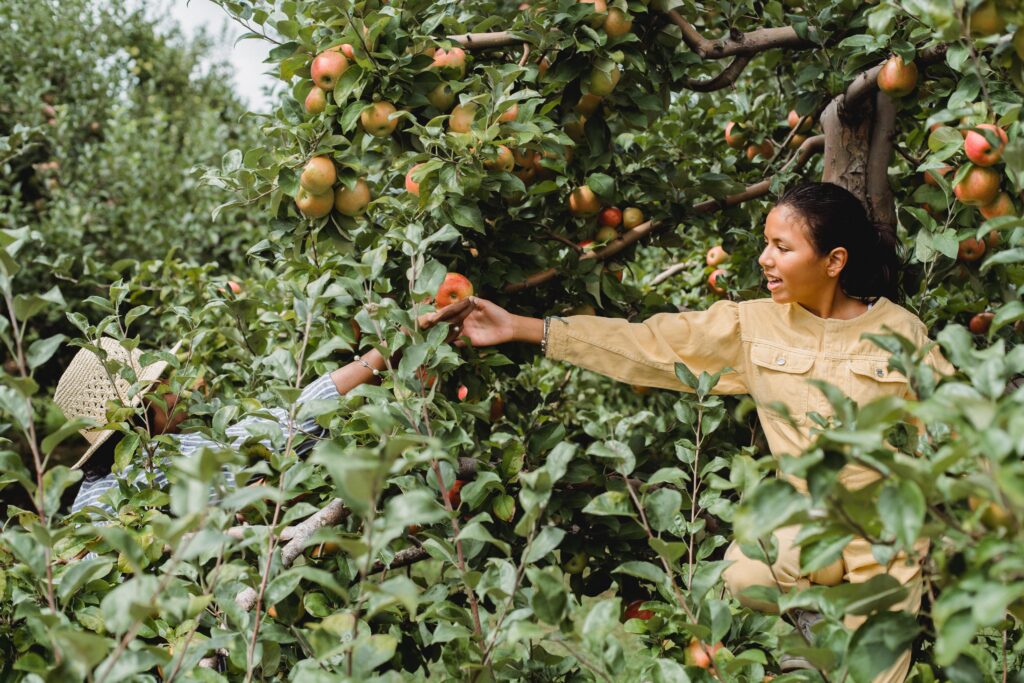
Stress Reduction: Finding Peace in the Garden
Life’s demands often lead to stress and tension, but stepping into the garden can provide an antidote. Gardening offers a unique form of stress relief, allowing individuals to unwind and reconnect with themselves.
How Gardening Provides Stress Relief:
Gardening serves as a hands-on form of meditation. Focusing on the tasks at hand, like planting, weeding, or pruning, diverts your mind from daily stressors. This mindfulness in gardening helps to calm racing thoughts and reduce anxiety.
Getting your hands in the soil has a grounding effect. The earthy scent, the tactile experience, and the connection to nature promote relaxation. Gardening enables individuals to slow down, fostering a sense of mindfulness and presence.
The Calming Effects of Being in Nature:
Spending time in nature is known to have a soothing impact on the mind and body. When you immerse yourself in a garden, surrounded by blooming flowers, buzzing insects, and the rustling of leaves, you’re enveloped by the healing energy of the natural world.
The sounds, scents, and sights of a garden awaken your senses, allowing you to escape from the hustle and bustle of daily life. This immersion in nature triggers the release of mood-enhancing neurotransmitters, reducing stress and inducing a state of calm.
For those who lead busy lives, gardening becomes a sanctuary where they can retreat and recharge. The time spent in their garden offers them a tranquil space to reflect, recuperate, and find serenity. It’s in this oasis that they discover the restorative power of nature and experience stress melting away.
By engaging in gardening as a regular practice, individuals can harness the stress-reduction abilities of the garden. It provides a much-needed pause in today’s fast-paced world, inviting them to unwind and embrace the calming influence of nature.
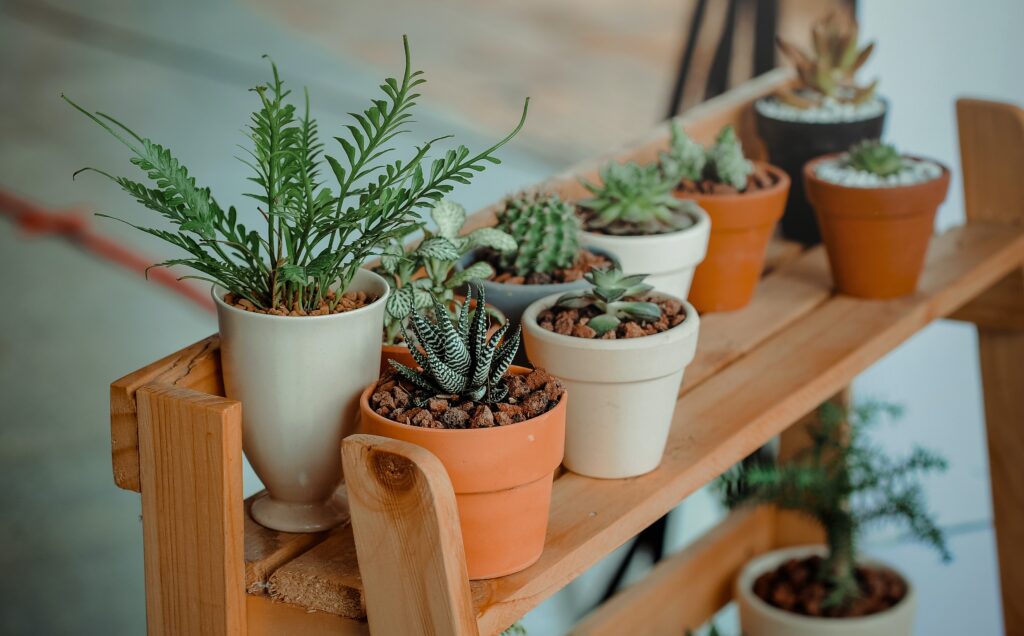
Mental Health Boost: Cultivating Wellness through Gardening
Discover how gardening can become a powerful mindfulness practice and elevate your mental well-being:
Gardening as a Mindfulness Practice:
Gardening is an ideal avenue for practicing mindfulness. It encourages you to be fully present, focusing on the task at hand, whether it’s planting seeds, tending to flowers, or nurturing herbs. This mindfulness in gardening allows you to let go of intrusive thoughts and immerse yourself in the here and now.
The act of gardening engages your senses. You can feel the soil in your hands, breathe in the fragrant blossoms, and listen to the symphony of nature. These sensory experiences ground you in the present moment, providing a break from the whirlwind of modern life.
The nurturing aspect of gardening cultivates patience and acceptance. As you watch your garden grow and evolve, you develop a deeper understanding of the natural cycles of life. This fosters emotional resilience and equanimity.
The Positive Impact on Mental Well-Being:
Multiple studies have linked gardening to improved mental health. Whether it’s the sense of accomplishment from growing your own vegetables or the relaxation of tending to flowers, gardening has a profound effect on your overall mood and mental state.
The garden serves as a refuge for reflection and solitude. It’s a space where you can retreat to gather your thoughts, reduce stress, and gain clarity. The act of tending to plants creates a sense of accomplishment, boosting self-esteem and confidence.
Engaging with the natural world stimulates the release of serotonin, the “feel-good” neurotransmitter. This can elevate your mood, helping to combat anxiety and depression. Gardening is like a natural antidepressant, spreading positivity with every bloom and harvest.
With the power of gardening, you can experience these mental health benefits and embark on a journey towards greater well-being. Check here to look for places to hike in nature across the US!
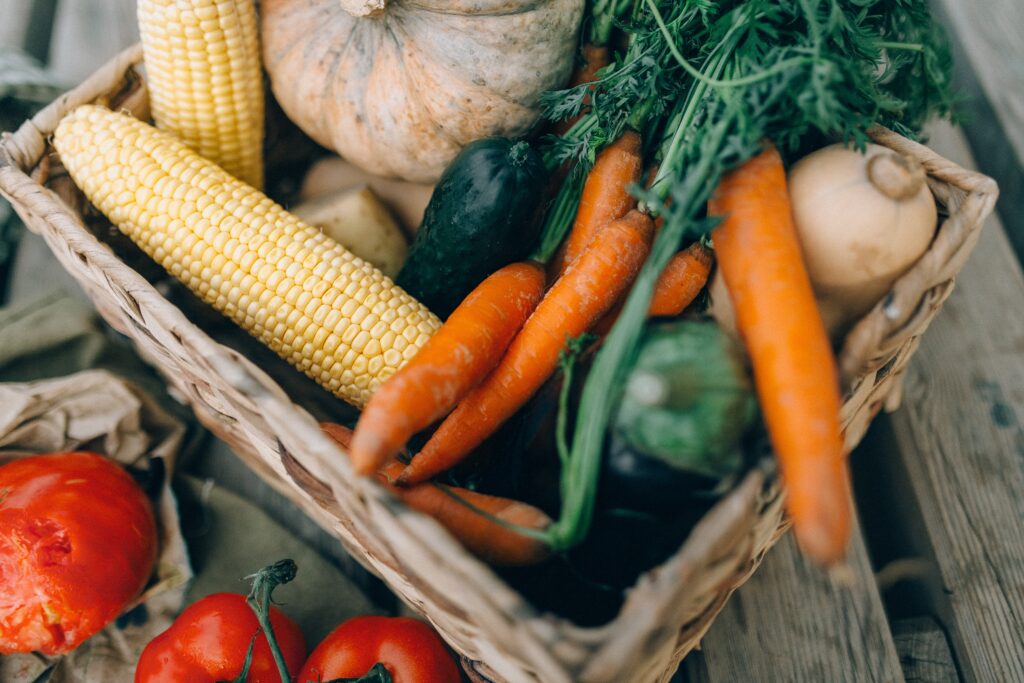
Nutrient-Packed Produce: Reaping the Rewards of Home-Grown Fruits and Vegetables
Let’s explore the bountiful benefits of cultivating your fruits and vegetables and the abundant rewards of having organic, nutrient-rich produce at your fingertips:
Benefits of Growing Your Own Fruits and Vegetables:
When you grow your own produce, you have the power to cultivate a diverse range of fruits and vegetables tailored to your tastes and preferences. You’re not limited to what’s available at the grocery store but can experiment with unique and heirloom varieties.
Home-grown fruits and vegetables are rich in flavor, superior in taste, and often free from the preservatives and chemicals sometimes found in store-bought options. You can enjoy the authentic, fresh-picked taste of your produce.
Gardening offers you control over the entire growing process, allowing you to implement organic and sustainable practices. This ensures your harvest is free from synthetic pesticides and fertilizers, providing you with food that’s not only delicious but also healthful.
Witness the joy of harvesting your own produce, enjoying a deeper connection to your food and a sense of accomplishment from planting and nurturing your garden. It’s immensely satisfying to see the fruits (and vegetables) of your labor.
Organic, Nutrient-Rich Produce and Its Rewards:
Home-grown fruits and vegetables, cultivated in nutrient-dense soil, are bursting with essential vitamins, minerals, and antioxidants. You can’t get any fresher than picking your produce right from the garden.
By growing your own, you can harvest fruits and vegetables at their peak ripeness, preserving the highest nutritional value. This results in a richer concentration of vitamins, making your meals even more healthful and delicious.
Eating organic, home-grown produce supports your overall health and well-being. It’s not just about nourishment; it’s about savoring the pure, vibrant taste and the knowledge that your food is grown with love and care.
When you nurture your garden, you’re cultivating more than just plants; you’re cultivating a lifestyle filled with nutritious, vibrant foods and the joys of enjoying the fruits of your labor

Immune System Strengthening: The Gardener’s Secret to Robust Health
In the realm of immune system strengthening, gardening acts as a green elixir, fortifying your body’s natural defenses and reducing those pesky sick days. Here’s how it works:
Exposure to the Outdoors and Immune System Health:
Gardening is a delightful excuse to step outside and bask in the wonders of nature. As you tend to your plants, you’re exposed to the elements, from the gentle warmth of sunlight to the invigorating embrace of fresh air.
Exposure to natural elements stimulates the production of vitamin D, which is vital for your immune system. When your skin absorbs sunlight, it synthesizes vitamin D, an essential nutrient for immune function. A robust immune system is better prepared to fend off illnesses and infections.
Gardening also connects you with beneficial soil microorganisms. These friendly “bugs” not only enrich your garden but can also enhance your gut microbiome, another critical player in immune system health. A diverse and balanced gut microbiome is associated with stronger immune responses.
Fewer Sick Days Due to Gardening:
Studies have shown that regular gardeners tend to have stronger immune systems. Their bodies become accustomed to low-level exposure to the microbes in the soil, “training” their immune systems to be more efficient.
As a result, people who engage in gardening often report fewer sick days. When they do fall ill, their recovery time is often faster. Their immune systems, primed by regular outdoor activity and exposure to beneficial soil bacteria, help them bounce back more quickly.
Gardening isn’t just about growing plants; it’s about growing your resilience. By spending time outdoors and in the garden, you’re bolstering your immune system and reducing the time you spend sidelined by illness. Your green thumb might just be the secret to a healthier you.
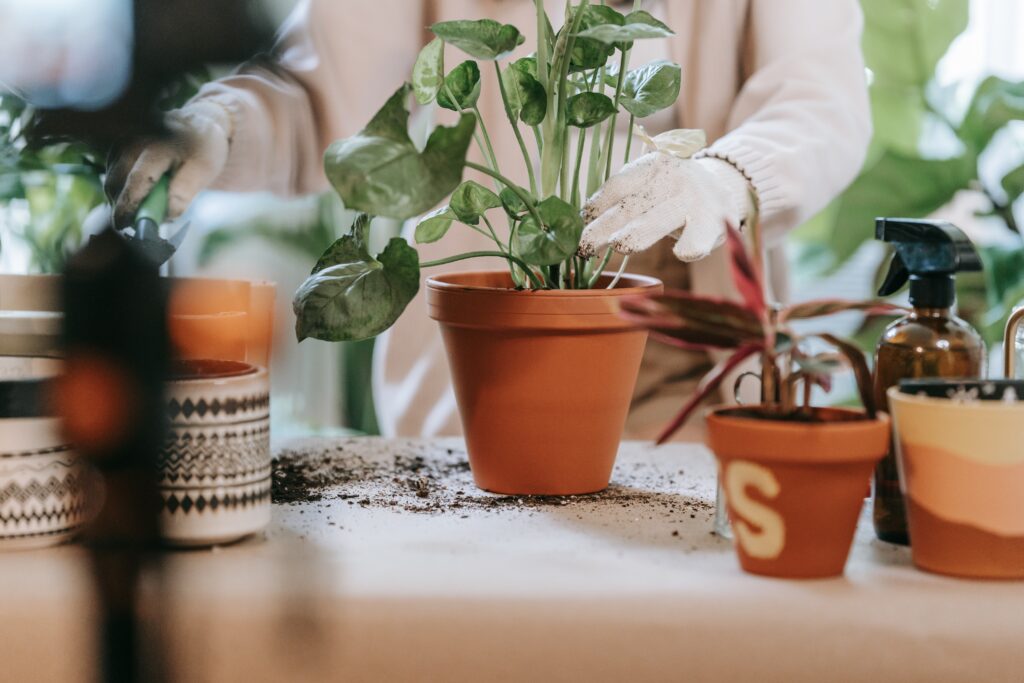
Cognitive Function Improvement: How Gardening Nurtures Your Mind
Beyond nurturing plants, gardening is a powerful practice that cultivates your cognitive functions, enhancing mental acuity and well-being. Here’s how it works:
Mental Stimulation in Gardening:
Gardening offers a constant stream of mental challenges. Planning your garden layout, choosing the right plants, and troubleshooting issues like pests or diseases require active problem-solving skills.
Whether you’re learning about new plant varieties, experimenting with different planting techniques, or devising solutions to garden-related problems, your mind remains consistently engaged. These ongoing mental exercises act like a workout for your brain, helping to keep your cognitive functions in top form.
How Gardening Keeps Cognitive Functions Sharp:
Regular gardening is associated with a reduced risk of cognitive decline. Research has shown that activities like gardening can lower the risk of developing dementia by up to 36%.
The act of gardening incorporates various aspects of cognitive function. It challenges memory (remembering what to plant where), problem-solving (identifying and addressing issues), attention to detail, and creativity (designing your garden).
The combination of physical activity, exposure to nature, and the need for cognitive engagement in gardening is a triple win for mental health. It can boost memory, focus, and even reduce stress, which contributes to overall cognitive function improvement.
Engaging in regular gardening is akin to a mental workout that keeps your cognitive functions sharp. It’s a delightful and effective way to stimulate your mind, reduce the risk of cognitive decline, and cultivate a healthier, happier you.

Enhanced Social Connections: Blossoming Friendships in the Garden
Gardening is more than just planting and pruning; it’s also a delightful avenue for building meaningful social connections. Here’s how gardening nurtures social bonds and brings joy to your life:
Building Social Bonds in Community Gardens:
Community gardens are vibrant hubs of connection and camaraderie. Tending to a shared garden plot introduces you to fellow gardening enthusiasts who might live just around the corner. These shared spaces foster a sense of community and togetherness.
The collaborative environment encourages interaction, creating opportunities to exchange knowledge and experiences. You’ll discover that seasoned gardeners are often eager to share their wisdom with newcomers. The result is a supportive, learning-rich environment where friendships can flourish. The American Community Garden Association has a tool FOR FREE that can help you find a garden near you.
The Joy of Sharing Tips and Stories:
Gardening conversations are special. Sharing tips, triumphs, and even the occasional gardening mishap can spark lively discussions and laughter among fellow enthusiasts.
Gardens are beautiful stages for storytelling. As you work alongside others, you’ll find that everyone has a story to tell about their plants – the resilient rosebush that survived the harsh winter, the thriving tomato plant that was once a tiny seedling, and the mischievous squirrels that love to raid the bird feeders. These shared narratives create lasting connections and a deep sense of belonging.
Gardening not only allows you to grow beautiful plants but also to cultivate wonderful relationships. Whether you’re sharing tips or stories, the garden becomes a space where bonds are nurtured, friendships flourish, and a warm sense of community is cultivated.

Sacred Living Space: Where Home and Garden Unite
In the quest to create a sacred living space, one often discovers that the boundaries between home and garden blur, forging a profound connection. Here’s how the peace and harmony found in a well-tended garden can transform your living space into a sanctuary:
Bringing the Outdoors In:
A well-designed garden seamlessly extends the living space. By strategically placing windows or glass doors, you invite the outdoors inside. This connection to nature can be calming and rejuvenating, enhancing the sense of tranquility in your home.
You’ll experience the changing seasons, the play of light and shadow, and the rustling of leaves as part of your daily life. This harmony with nature encourages contemplation and reflection, supporting your spiritual well-being.
A Place of Retreat:
Your garden becomes an inviting refuge for meditation, yoga, or quiet reflection. It offers a sanctuary for deep contemplation, away from the distractions of the digital world.
The gentle sound of rustling leaves, the fragrance of blooming flowers, and the vibrant colors of the garden become tools for centering yourself and enhancing your spiritual practice.
Mindful Gardening:
The act of tending to a garden requires focus and presence. It’s a mindfulness practice in itself. As you nurture your plants, you’re also nurturing your spirit.
Mindful gardening encourages you to be fully engaged in the present moment. The care you provide to your plants becomes a symbol of the self-care and attention you dedicate to your spiritual well-being.
A Feast for the Senses:
A sacred living space is a multisensory experience. Your garden delights your senses with colors, fragrances, and textures. It’s a place where you can see, touch, smell, and even taste the beauty of nature.
Engaging your senses in this way can create a holistic sense of well-being, nurturing your spirituality as you immerse yourself in the sensory richness of your living space.
The peace and harmony you cultivate in your garden don’t stay confined to its boundaries. They flow seamlessly into your home, creating a sacred living space where your connection to nature supports your spiritual well-being. In this harmonious blend of home and garden, you find a sanctuary that nourishes your soul.
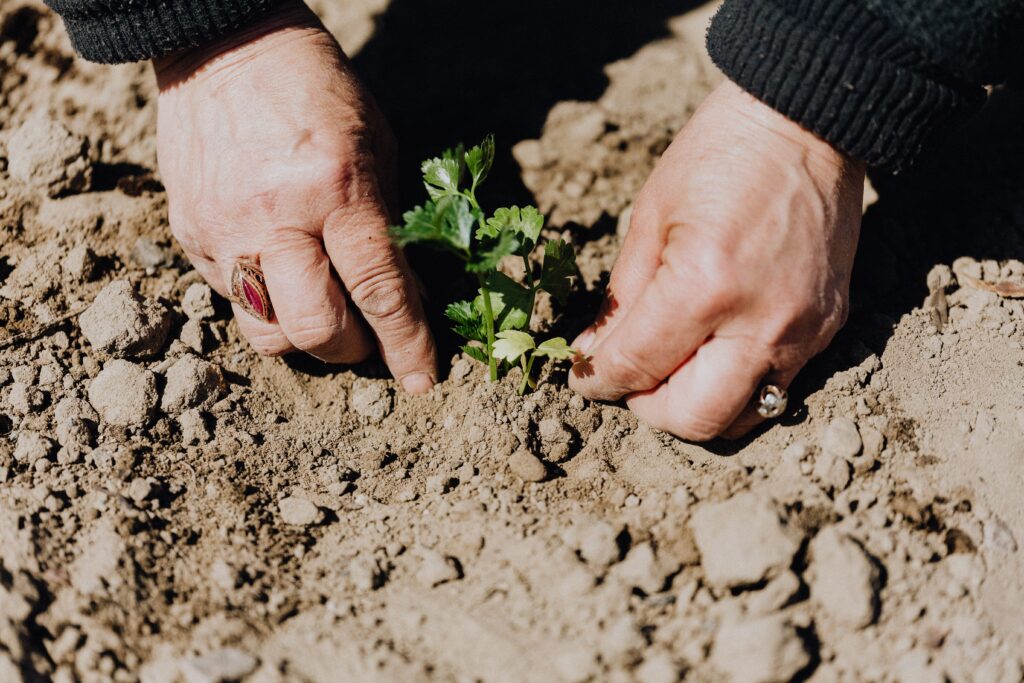
Environmental Consciousness: Tending to the Earth
The environmental benefits of gardening go far beyond your backyard. Through this practice, you can become an advocate for the planet and contribute to a healthier, more sustainable world:
Promoting Biodiversity:
Gardening often involves choosing a variety of plants, both native and non-native. This diversity can create a habitat for local wildlife, from birds and bees to butterflies and beneficial insects. Your garden becomes a sanctuary for these creatures, promoting biodiversity in your community.
As a steward of your garden, you play a crucial role in maintaining this balance, creating a space where various species can thrive.
Sustainable Gardening:
Sustainable gardening practices reduce your environmental impact. By using organic methods, composting, and minimizing water use, you demonstrate your commitment to preserving the Earth’s resources.
This mindful approach to gardening extends beyond your plot. It’s a small but significant contribution to global sustainability efforts.
Connecting with the Land:
Gardening provides a tangible connection to the land. You learn about the soil, water, and climate of your region, gaining a deeper understanding of the environmental challenges it faces.
This knowledge can lead to more informed choices in your daily life, such as reducing water waste, conserving energy, and making eco-friendly decisions that benefit the environment.
Growing Your Own Food:
Many gardeners grow their own fruits and vegetables. By producing your food, you reduce the carbon footprint associated with shipping, packaging, and commercial agriculture.
Growing food in your garden also encourages responsible land use and the consumption of fresh, locally sourced produce.
Inspiring Others:
As your garden flourishes and you embrace sustainable practices, you become a source of inspiration for friends and neighbors. Your commitment to caring for the Earth can inspire others to adopt environmentally conscious habits.
This ripple effect amplifies your impact, encouraging a broader community to engage in responsible gardening practices.
Your garden isn’t just a personal oasis; it’s an active contribution to environmental well-being. By tending to your garden with environmental consciousness, you promote a greener, healthier planet for future generations.

Embrace Gardening for a Healthier, Happier You
Gardening isn’t just about plants; it’s a life-enriching journey. From physical fitness to mental wellness, nutrition to a stronger immune system, and even fostering social connections, gardening offers a wealth of health benefits. But it doesn’t stop there.
Your garden becomes a beacon of environmental responsibility, advocating for a healthier planet. So, start your gardening adventure today, and let your garden bloom with vibrant health and well-being. Happy gardening!
Related posts
Building Healthy Habits: Reframing your Thoughts
5 Comments
Leave a Reply Cancel reply
the art of doing your best
-Baba





This is really interesting, You’re a very skilled blogger. I’ve joined your feed and look forward to seeking more of your magnificent post. Also, I’ve shared your site in my social networks!
Excellent information was provided. I truly liked reading this piece, and I’m grateful to the author for providing it. Thank you for sharing this blog post. Once again, thanks. Nice.
Hello Neat post Theres an issue together with your site in internet explorer would check this IE still is the marketplace chief and a large element of other folks will leave out your magnificent writing due to this problem
Its like you read my mind You appear to know so much about this like you wrote the book in it or something I think that you can do with a few pics to drive the message home a little bit but instead of that this is excellent blog A fantastic read Ill certainly be back
Hello, I truly like your post. Could we keep in touch regarding your AOL posts? To fix a difficulty I’m having, I need to speak with an expert in this subject. You might be that person after all. It will be a pleasure to talk to you.